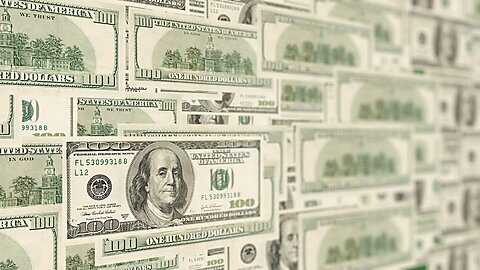Daniel Raisbeck
An irony of the BRICS summit in South Africa last August, which included “de‐dollarization” in the official agenda, was the touting of Argentina as one of the group’s new members. Argentina, of course, is on the brink of a presidential run‐off in which the candidate who leads most polls, free‐market economist Javier Milei, vows to shut down the central bank and officially dollarize the country.
Having lost over 95 percent of its value relative to the dollar since January 2019, Argentina’s national currency has been effectively destroyed. Even if Milei’s opponent, current Peronist finance minister Sergio Massa, wins the election on Sunday, he will have to face the fact that the country is already unofficially dollarized.
Indeed, Argentines have flocked to the dollar to protect their savings and gain monetary stability. For instance, 80 percent of used cars are now being sold through dollar transactions according to one report.
Nor is Argentina alone in terms of its de facto dollarization. In Venezuela, where socialists also destroyed the currency and unleashed hyperinflation, autocrat Nicolás Maduro relaxed a series of currency and price controls in 2019, thus granting people greater access to US dollars. Venezuelans embraced the opportunity without delay. By 2021, over half of all purchases of basic goods were being made in dollars. Maduro is now trying to curb the use of the dollar once again. Venezuelans, however, are fully aware that access to a sound currency is among the most basic of property rights.
Nearby, the citizens of Panama, Ecuador, and El Salvador, Latin America’s three officially dollarized countries, also know the advantages of a hard currency firsthand: low inflation, low interest rates, longer loan periods, and strong purchasing power. This is why large majorities in those nations have no desire to de‐dollarize. Nor do they wish to grant legal tender to one of the BRICS currencies. The case for de‐dollarization, it seems, has been overstated.
As economist Tyler Cowen writes, the US dollar is still used for the lion’s share of all global transactions, while American financial markets remain unparalleled in terms of their depth and liquidity. Fears of Chinese expansionism across the world have even strengthened the view of the dollar as a safe haven currency.
In Latin America, capital flight to the US financial system has long been the standard reaction to high taxes and fiscal profligacy, especially when governments add a penchant for monetizing the debt, devaluing local currencies and expropriating private property. Official dollarization, meanwhile, eliminates the option of devaluation, imposes a hard budget constraint on politicians, and introduces a strong rule‐of‐law element to the monetary sphere, as Professor Steve Hanke has argued.
Since Panama, Ecuador, and El Salvador are relatively small countries, dollarization’s success in Latin America has been mostly overlooked, regarded only as a regional anomaly. Argentina, on the other hand, is a large and influential country. If Milei wins, Argentina’s dollarization could be a regional watershed. If executed properly, other Latin American countries, not only those suffering under hyperinflation, might begin to consider the dollarization alternative.
In this sense, Brazilian President Lula Da Silva and his left‐wing allies are correct in arguing that Latin America needs a common currency. Contrary to what they propose, however, the optimal currency for the region is that which ordinary Latin Americans use if given a choice: the US dollar.
Widespread dollarization would not only bring broad monetary stability to Latin America, an achievement in and of itself. Dollarization also can accelerate the next wave of regional integration through free trade, especially if the region’s democratic republics are granted access to USMCA, the free trade area formerly known as NAFTA (as a bipartisan group of members of Congress now propose).
In fact, as Shannon K. O’Neil notes, one of Latin America’s most underrated economic problems is its lack of intraregional trade, which accounted for a mere 15 percent of overall trade in 2018 compared to 55 percent for the European Union and 38 percent for North America.
Thus, a single free trade area encompassing most of the Americas is a brilliant prospect. Its achievement would create a trade bloc larger than that of the EU’s Single Market. And, as in the Eurozone, the widespread use of one, strong currency can boost the free flow of goods and services across national borders, especially for “later adopters.” In Latin America, this can be achieved without the serious drawbacks of an EU‐like fiscal or political union.
If Milei wins the election on Sunday, Argentina’s dollarization can be a major step toward an enlarged, Latin American “dollar zone,” which can spur extraordinary opportunities for wealth creation across the region. But even if the Peronists hold on to power, the dollarization cat already might be out of the bag. Milei’s unexpected electoral success has made it evident that, in one of the region’s largest countries, “monetary sovereignty” has only amounted to sovereign monetary blundering.
























